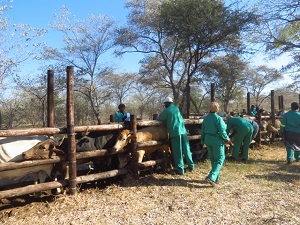
Meatco revises its strategy: unexpected increase in cattle numbers
Following a decision to lay off seasonal workers in July 2013 because of a decline in cattle numbers marketed, Meatco has opted to revise the decision following an uptake in the number of cattle marketed. The uptake comes on the back of an increase of the Norwegian quota and a favourable exchange-rate environment. Both the Windhoek and Okahandja factories will be in operation from 22 April 2014, providing employment for close to 200 people on a fixed-term basis for five months. Employees will be appointed on a five-month fixed-term-contract basis from April 2014 to the end of August 2014. “As promised last year, if we get back to high cattle numbers in future and upscale our numbers, previously employed Meatco fixed-term employees will be given an opportunity to be the first to apply for these vacant positions,” said Neu-Nique Williams, Corporate Communications Officer at Meatco.
With this operational decision Meatco anticipates to get at least another 16 000 cattle through its factories over the next five months. “Another factor which we did not include in our planning for this year was the Norway quota. Meatco received an additional 400 tons earlier this year that we may export to Norway. The combination of the Norway quota and the value that we are able to generate from the favourable exchange rate puts Meatco in a position to be able to afford and sustain high producer prices,” Williams said. Added Williams, “On a strategic level Meatco has considered the benefits that this decision [ease of importing cattle] would have on the industry, our business and our country. This decision was recently made by government to allow beef imports from other countries once again. This decision had a significant impact on our business, because we now have the opportunity to market our product to more lucrative markets where we get better returns and improve the prices paid to producers.” Both the Windhoek and Okahandja abatoirs are expected to be in operation on a rotational basis for the period under review.










































